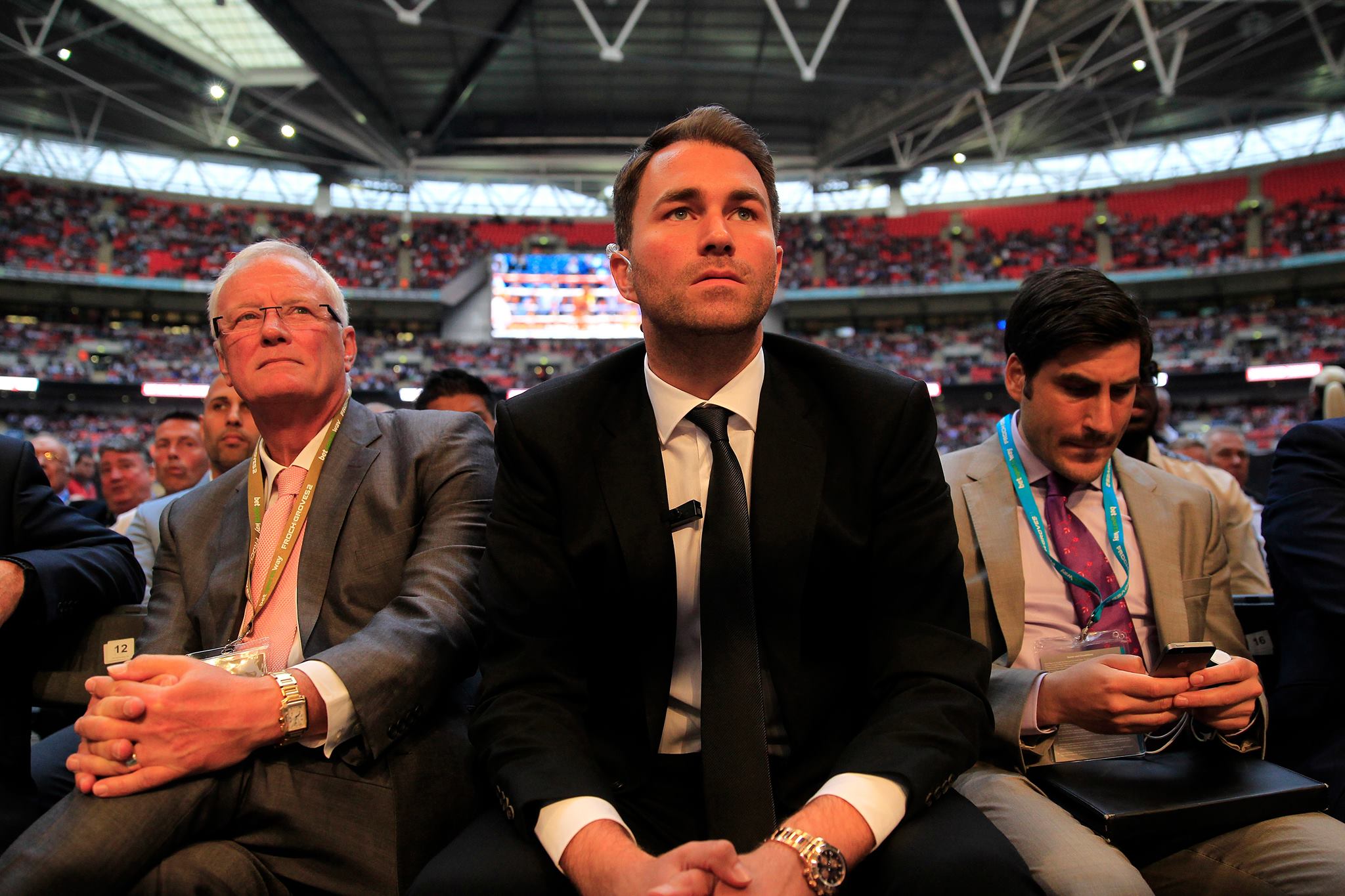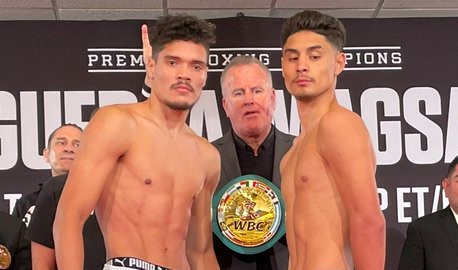By Tom Donelson
Clay Moyle recent biography, Sam Langford: Boxing’s Greates Uncrowned Champion, tells a story of one of boxing’s greatest fighter. It could easily be argued that Sam Langford was the greatest pound for pound fighter in boxing’s history. This was a man who fought as a lightweight at the beginning of his career and ended his career as one of boxing great heavyweights in the early part of the twentieth century.
The biggest problem is that Langford never got his chance to be a champion. The closet he ever came was when he fought and defeated Joe Gans for the lightweight championship but Langford weighted one pound over the weight for the fight and thus, denied his title. He later drew with Joe Walcott for the welterweight championship and from that point, never given another opportunity to win a title.
Moyle makes it clear that racism played a role in Langford in fighting for a title after his fight with Walcott but it is a more complicated story. African-Americans did have opportunity to fight for titles and Jack Johnson managed to get Tommy Burns into the ring for Burns’ heavyweight title. It is Moyle contention that Langford’s prime was between 1907 thru 1912 and throughout most of that period; the heavyweight champion was Jack Johnson.
Johnson gave only one fellow African American a shot at the title and that was Battling Jim Johnson. As for Langford, Johnson denied Langford any shot at the title. Or for that matter, he never gave other great African-American fighters Sam McVey and Joe Jeannette their shot at a title. Johnson fought both McVey and Langford early in their career when both fighters were still inexperienced and managed to win tough victories over both but he realized that the risk to his title was not worth the money and possible lost of his title. Johnson knew that he could earn more money fighting white challenger with less risk to his title. Langford was great heavyweight; good enough to beat Jack Johnson. Moyle noted that many white pundits felt Langford had the right stuff to beat Jack Johnson.
Langford was a unique specimen. With long arms and broad shoulders, he was able to make up for his lack of height against bigger men. And many of the men he fought were definitely bigger. Many heavyweights that Langford fought for stood over six feet and many were comparable in height to today’s heavyweights. Langford did not even stand five foot seven and had he won the heavyweight title, he would have been the smallest heavyweight, even smaller than Tommy Burns. Langford chased Johnson across the globe just as Johnson chased Tommy Burns to gain his title.
Langford was the anti-Johnson just as Joe Louis would be later. Whereas Johnson gave White America the proverbial middle finger, Langford did not imitate the more colorful Johnson outside the ring. When Langford fought in Australia, former champion Tommy Burns commented that Australians treated fighter with respect provided they knew how to behave and Burns commented Langford “knew how to behave.” Translation, Langford did not behave like Johnson, whose dating of white women sent the White establishment after him.
Langford dilemma was that he was too good for Johnson to fight him and many whites avoided Langford for a lost to Langford would effectively end any chance of being the Great White Hope. Gunboat Smith was a prime example. In his first fight with Langford, he won by decision but a subsequent knock out lost in the rematch ended his own title aspirations.
Langford found himself fighting other African American fighters numerous times just to make ends meet and he often went overseas to earn income but even that often proved futile. For Langford, his livelihood depended upon his fighting and there were times that he would fight several fights in short period of times. In 1914, he fought four fights between October 26 and November 26.
These numerous fights paid their tolls as after he turned 30, his career showed decline and his skills eroded. When Jess Willard won the title, whatever chance Sam Langford had to fight for the heavyweight title ended. The White establishment was not going to allow another black fighter fight for the heavyweight title after the Johnson era and that meant Langford no longer had a shot at a title.
By the time Willard won his title, Langford own skills showed deterioration and as the decade moved on; he no longer was the uncrowned king of the heavyweight, he wasn’t even the best African-American fighter. After Willard, Harry Wills dominated his series with the more elderly Langford. With Johnson out of the picture, and Langford skills on the downside, Wills become the best African American fighter.
Langford began his career in poverty and ended his career in poverty. In 1917, Langford fought Fred Fulton, an up and coming white fighter. During the fight, he noticed that he had trouble seeing. He could not see his opponent clearly and Fulton stopped Langford and from this point, Langford eyesight deteriorated. It didn’t stop him fighting for another decade but it did lead to permanent blindness. He often fought his last decade unable to see clearly and this combined with the lost of his quickness made his last decade of fighting more difficult. He became vulnerable to head shots that he often ducked early in his career.
Another aspect of Langford’s career was that many fighters including many white fighters respected Langford character and skills. Throughout his post fight career, many of past opponents would often do charity functions to help Langford to survive and while many of them found ways to avoid fighting him in his career; everyone knew what a star he truly was.
Langford career showed contradiction. There were many whites feared Langford was capable to winning a title and avoided him. Throughout much of his prime as a heavyweight, the champion was the African-American heavyweight Jack Johnson and Johnson knew that he could make more money fighting whites. Langford had two strikes against him, he was good and he was African American. Even Johnson used his version of the color line to deny Langford his shot of the title. Langford was one of those colorful characters who got lost in the history book and for many years, his feat hidden away.
One of boxing’s great pound for pound fighters, he was recognized as one of the sports great in the early part of the 20th century but by the time he died, he was a nearly forgotten blinded fighter. Moyle brings to life Langford and reminds us of a time in which an African-American fighter suffered from racism but he also paints the picture of a fighter who loved the sport he participated in; regardless of the cost



















zelma
12/30/2022 at 8:48 pm
Waiting patiently for you to come home and fuck me! https://bit.ly/3UKFVxa